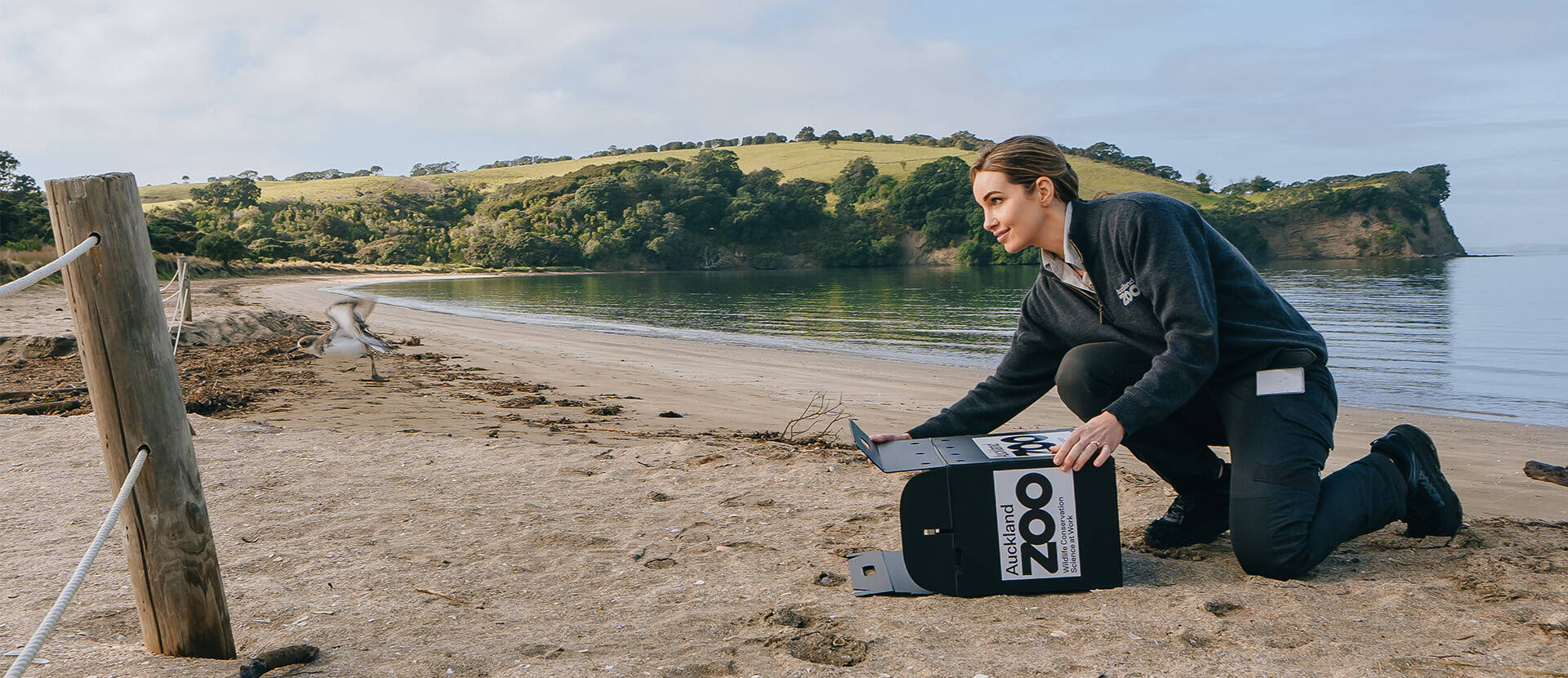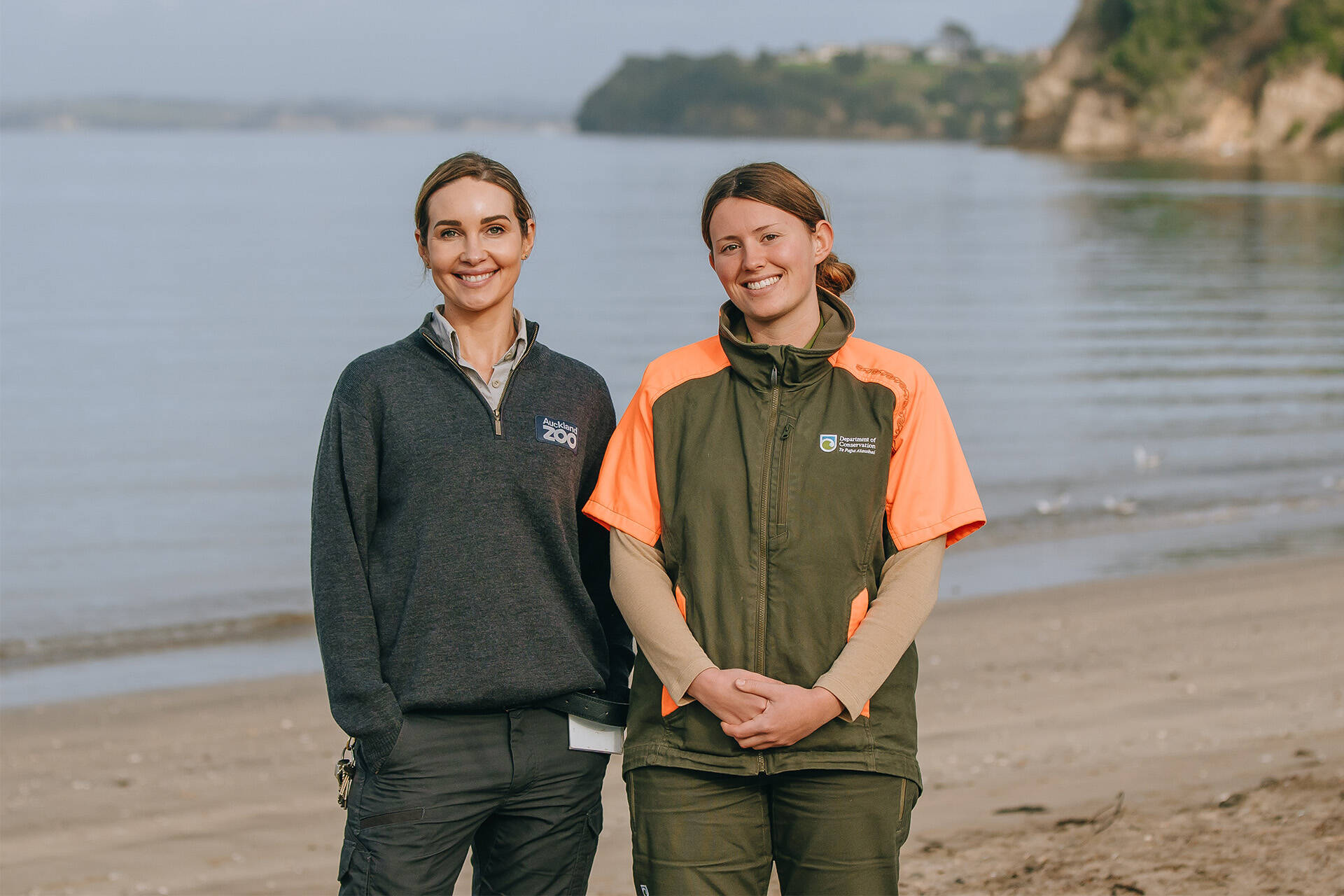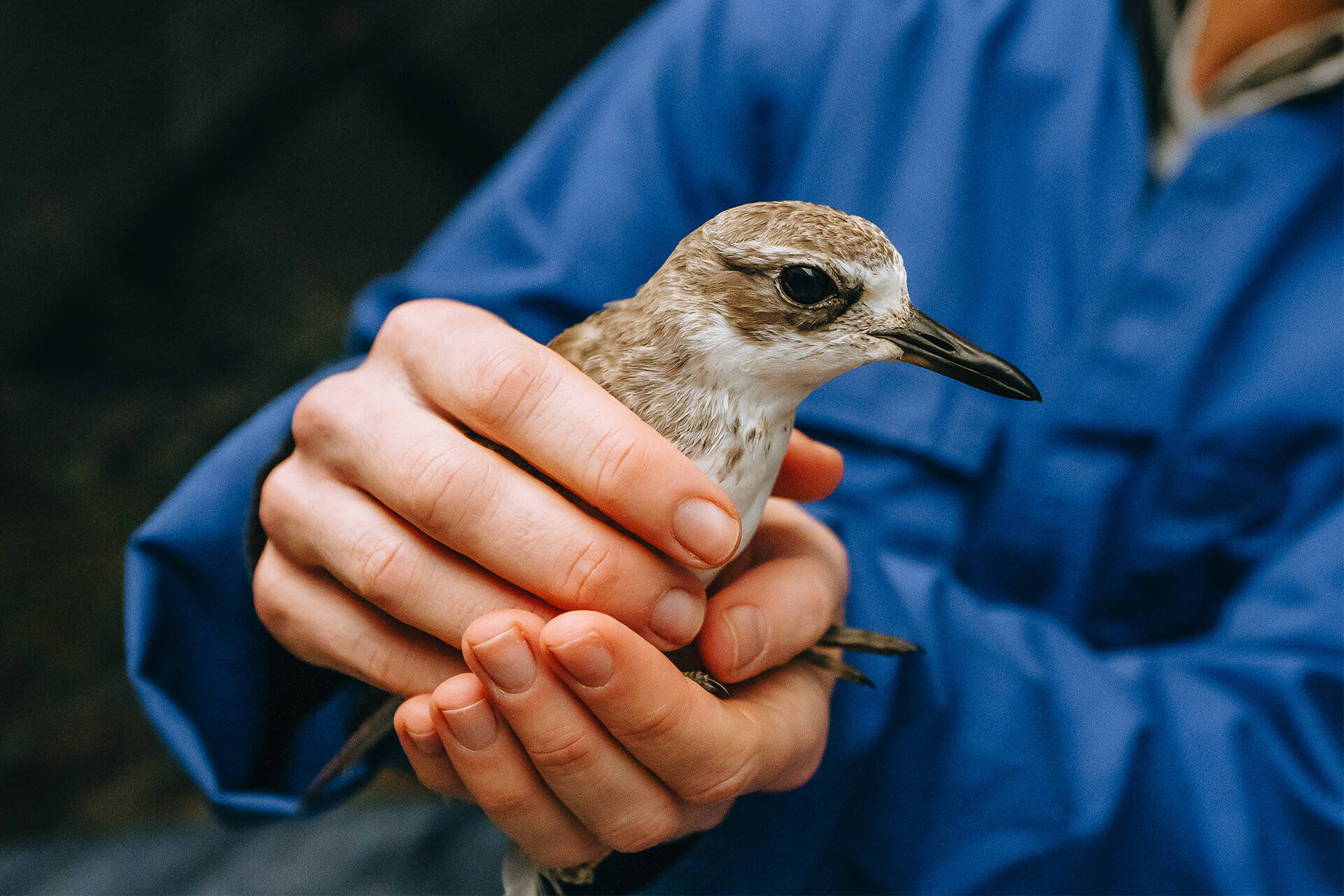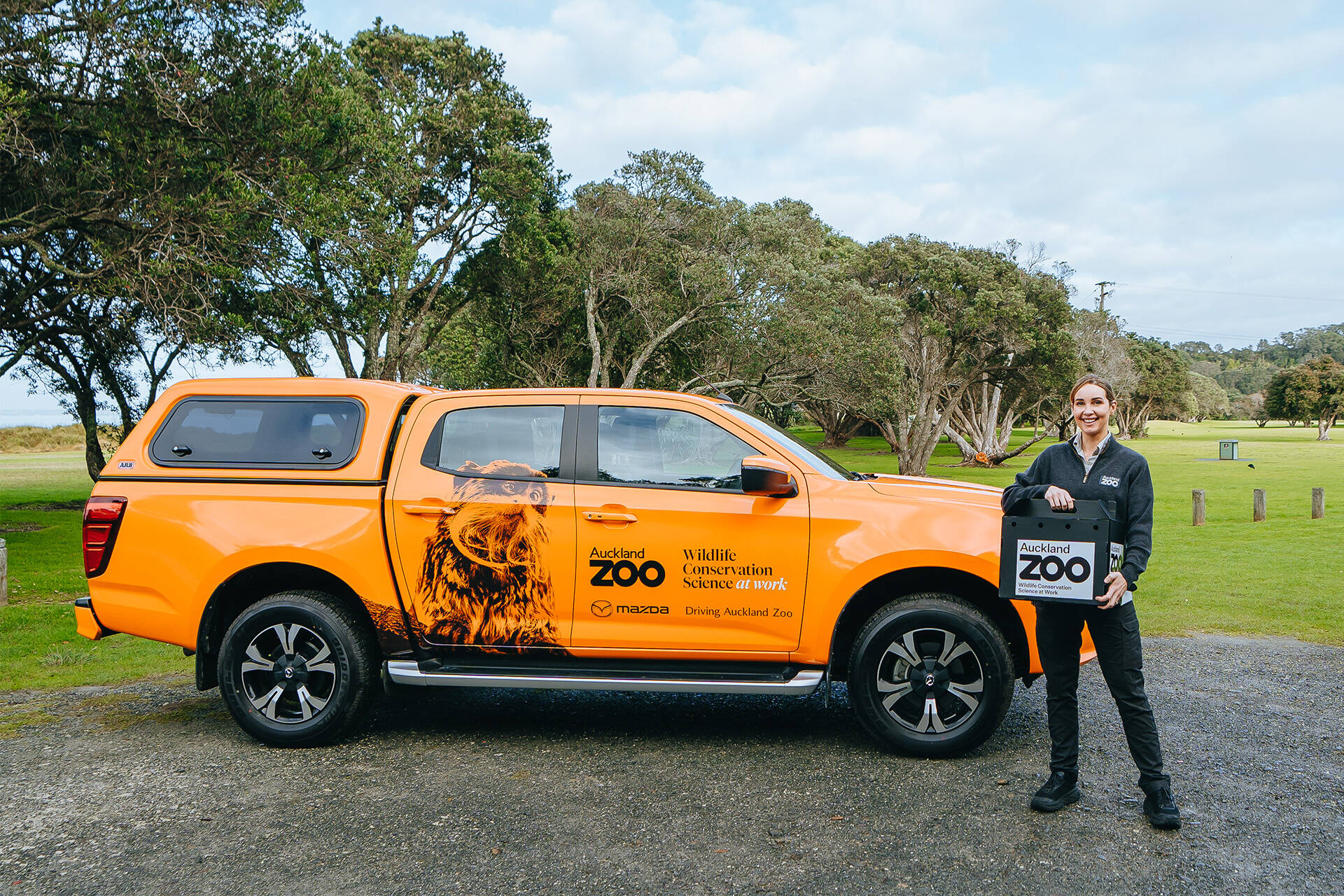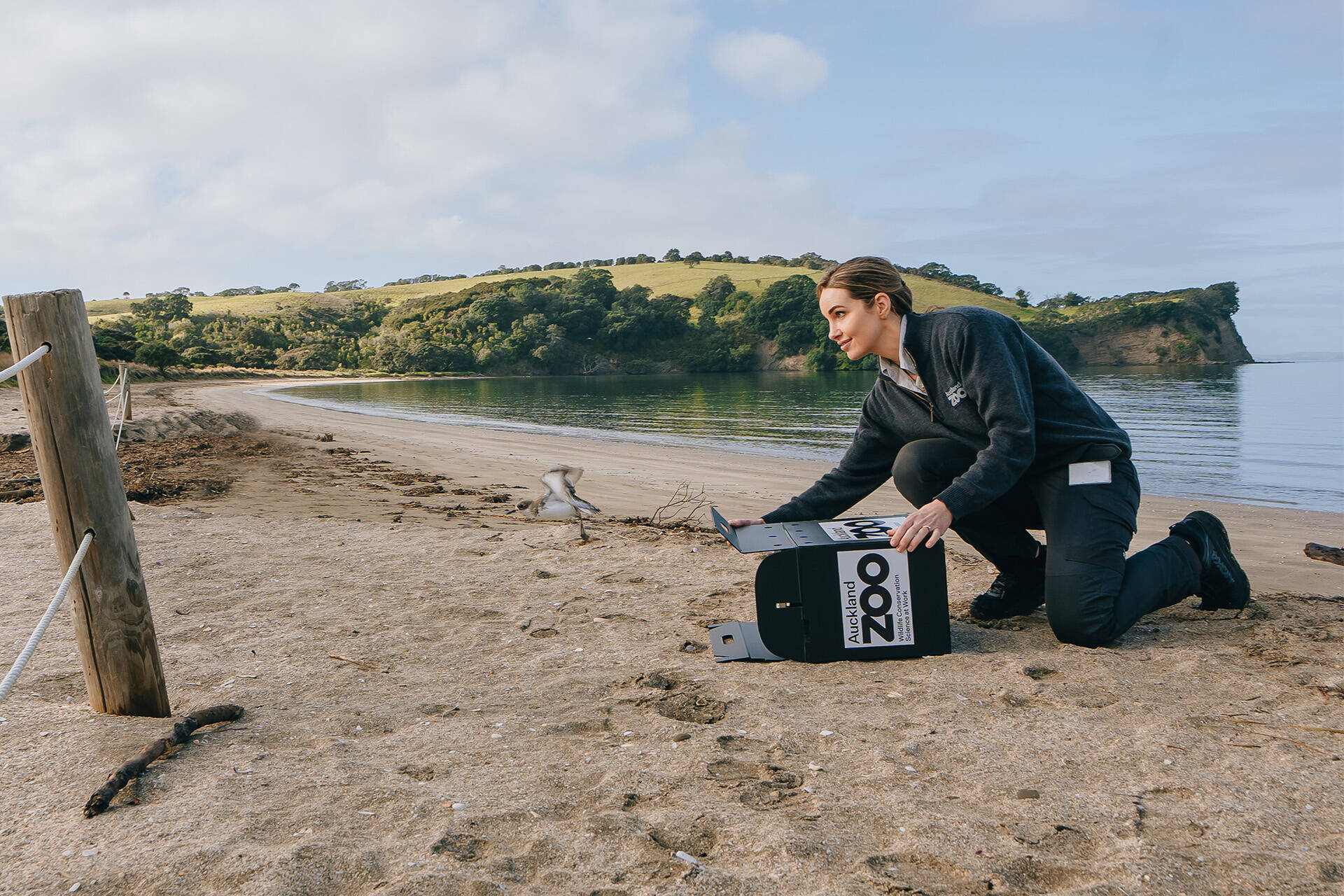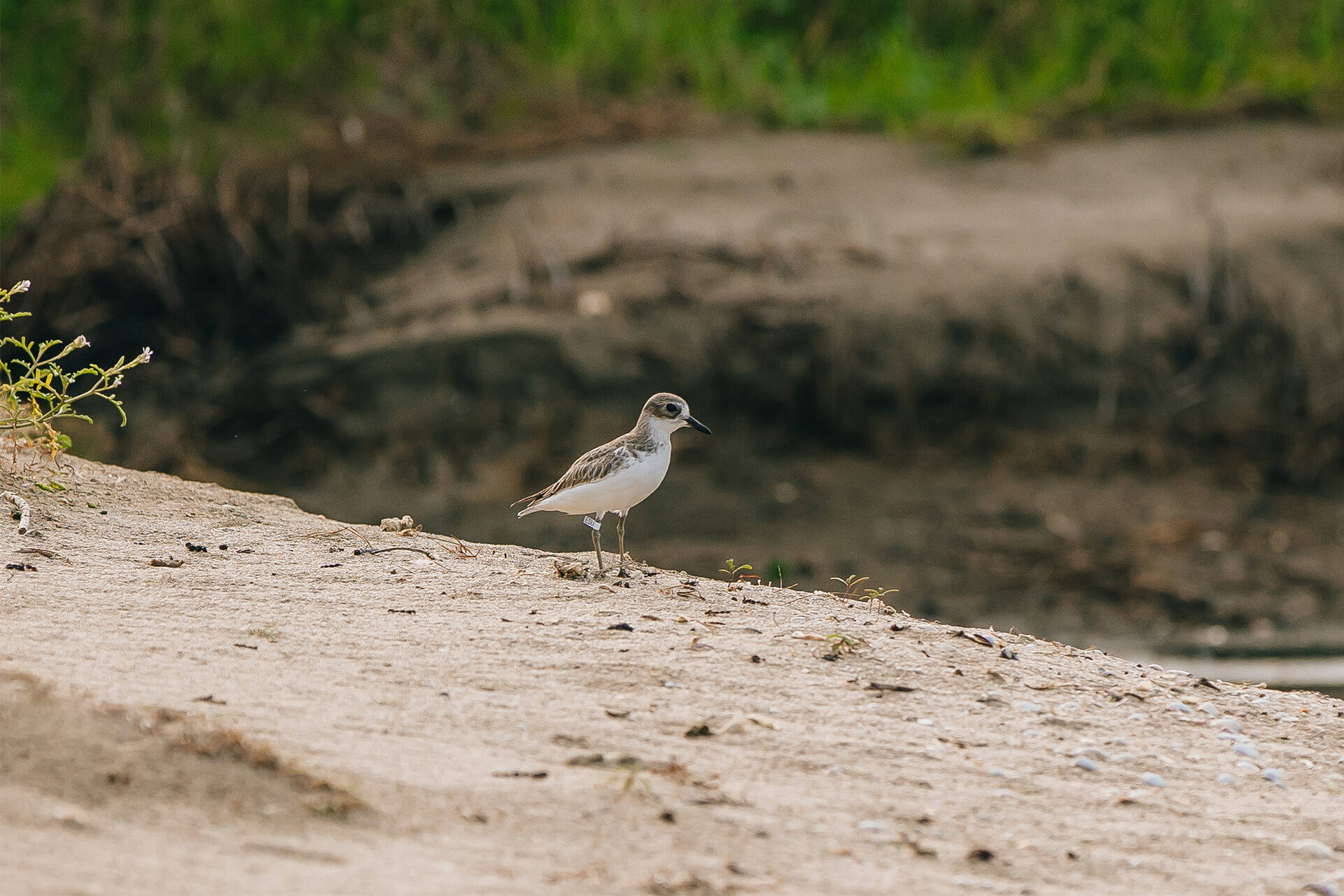In June, this juvenile dotterel was brought into our veterinary hospital when it was found emaciated and weak at Whangaparoa Peninsula.
A conscientious member of the public could see that the bird was very unwell, and sought help, aided by the fact that the bird was banded. These leg bands were placed as part of monitoring efforts in March 2024, so we knew that this bird was less than a year old.
Upon arrival, a physical exam revealed the patient to be very weak, semi-collapsed, and in thin body condition with a weight of 98g. Supportive care, including rehydration, warmth and nourishment, helped to stabilise the bird. The next day, it was anaesthetised and X-rays, blood tests and faecal samples were taken. These tests ruled out traumatic injury, though parasites were suspected, so the dotterel was dewormed.
To enable the much-needed weight gain prior to release, ongoing care included tube-feeding a liquid diet three times a day, including salmon oil for its high calorie content. Small pieces of fish were offered as well as a range of small insects. Soon, she was placed in a large den and much to our veterinary team’s delight – she began to self-feed.


